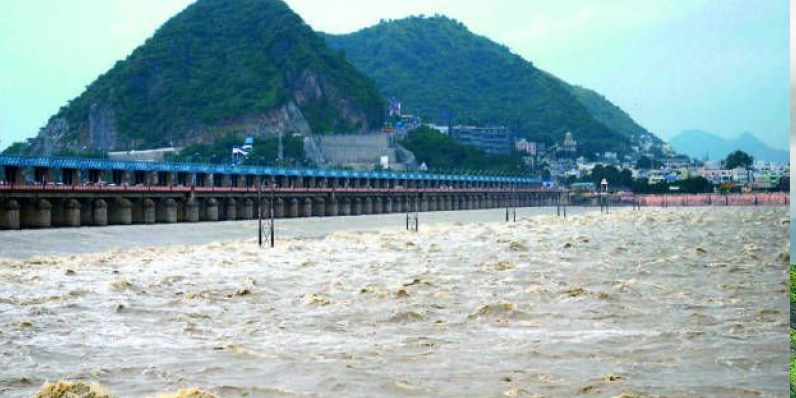Telangana Pushes Back on Andhra’s River-Link Project in Water Rights Standoff
The simmering water dispute between Telangana and Andhra Pradesh has flared up again, with Telangana firmly opposing Andhra’s ambitious Polavaram-Banakacherla Link Project. This river-linking initiative, aimed at diverting surplus Godavari River floodwaters to the drought-prone Rayalaseema region, has sparked concerns over water rights, regional impacts, and compliance with existing agreements. As both states dig in, the standoff underscores the complexities of managing shared river resources in India’s federal structure.
Recent reports highlight Andhra Pradesh’s push to fast-track the Rs 81,900 crore project, which seeks to channel Godavari floodwaters from the Polavaram Dam to the Banakacherla regulator through a network of canals, pipelines, and tunnels. The project promises to irrigate arid regions, provide drinking water for millions, and generate power. Andhra’s Irrigation Minister, Nimmala Ramanaidu, has emphasized that the initiative will use only surplus floodwaters, ensuring no harm to upstream states like Telangana. However, Telangana’s government, led by Chief Minister A. Revanth Reddy, argues that the project violates the Andhra Pradesh Reorganisation Act of 2014 and the Godavari Water Disputes Tribunal Award of 1980, potentially threatening the state’s water security.
Telangana’s objections center on the project’s potential to disrupt water allocation agreements. The Godavari River Management Board (GRMB), tasked with overseeing water-sharing between the two states, has been drawn into the dispute. Telangana contends that Andhra Pradesh did not adequately consult the GRMB or upstream states before advancing the project. Reddy has called for dialogue, stressing that joint discussions could have avoided the current tensions. He has also raised concerns about the project’s impact on areas like Bhadrachalam, a culturally significant temple town in Telangana, where flooding risks could increase.
The Polavaram-Banakacherla Link Project is not the first flashpoint in this ongoing inter-state water conflict. The Krishna River dispute, particularly over the Nagarjuna Sagar Project, has long been a sore point. In late 2023, Andhra Pradesh’s brief takeover of parts of the Nagarjuna Sagar site escalated tensions, with Telangana accusing Andhra of undermining shared control. The Krishna River Management Board (KRMB) has struggled to enforce agreements, as both states accuse each other of bypassing protocols. Telangana’s reluctance to hand over certain project components to the KRMB has further complicated matters, leaving key decisions in limbo.
Experts point out that India’s river-linking projects, while innovative, often ignite disputes due to competing state interests. The Godavari and Krishna rivers, vital for agriculture and drinking water in both states, are governed by complex agreements that predate Telangana’s formation in 2014. Andhra Pradesh argues that its project aligns with the rights of lower riparian states to utilize surplus water, but Telangana insists on equal entitlement and safeguards. Posts on X reflect public sentiment, with some users in Telangana accusing Andhra of unilateral action, while others in Andhra defend the project as critical for drought relief.
The central government, through the Ministry of Jal Shakti, faces pressure to mediate. Andhra Pradesh has submitted its project proposal for environmental clearance, with a target to begin construction by March 2026. Meanwhile, Telangana’s cabinet has signaled its intent to pursue legal action, potentially escalating the matter to the Supreme Court. Official statements from Telangana emphasize protecting the state’s water rights, while Andhra Pradesh maintains that the project will benefit the entire region without compromising upstream allocations.
This standoff highlights broader challenges in India’s water management framework. With climate change intensifying water scarcity, states are increasingly protective of their resources. Collaborative mechanisms like river management boards exist, but their effectiveness is limited without mutual trust. As Telangana and Andhra Pradesh navigate this dispute, the outcome could set a precedent for how India balances development ambitions with equitable resource sharing. For now, both states are urged to prioritize dialogue to prevent further escalation, ensuring that the Godavari’s waters serve as a lifeline rather than a source of division.


